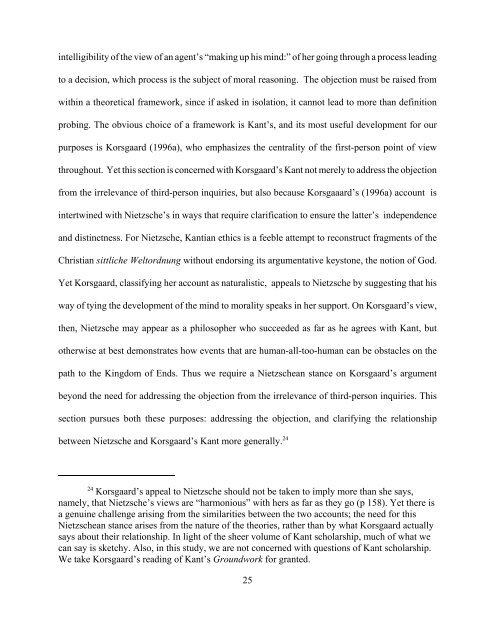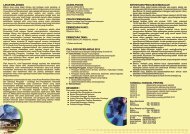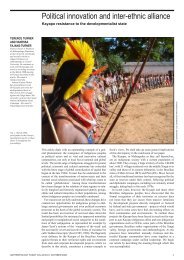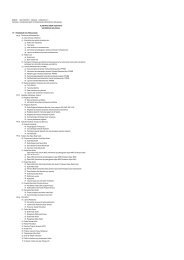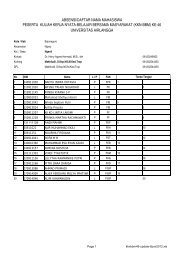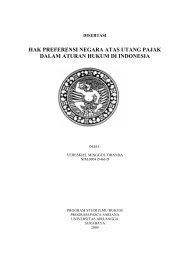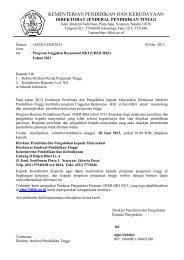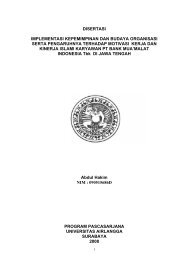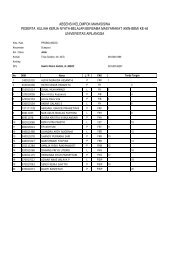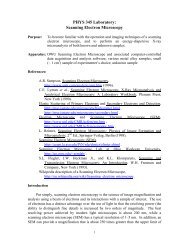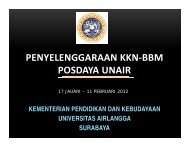Nietzsche's Naturalistic Ethics - UNAIR | E-Book Collection
Nietzsche's Naturalistic Ethics - UNAIR | E-Book Collection
Nietzsche's Naturalistic Ethics - UNAIR | E-Book Collection
You also want an ePaper? Increase the reach of your titles
YUMPU automatically turns print PDFs into web optimized ePapers that Google loves.
intelligibility of the view of an agent’s “making up his mind:” of her going through a process leadingto a decision, which process is the subject of moral reasoning. The objection must be raised fromwithin a theoretical framework, since if asked in isolation, it cannot lead to more than definitionprobing. The obvious choice of a framework is Kant’s, and its most useful development for ourpurposes is Korsgaard (1996a), who emphasizes the centrality of the first-person point of viewthroughout. Yet this section is concerned with Korsgaard’s Kant not merely to address the objectionfrom the irrelevance of third-person inquiries, but also because Korsgaaard’s (1996a) account isintertwined with Nietzsche’s in ways that require clarification to ensure the latter’s independenceand distinctness. For Nietzsche, Kantian ethics is a feeble attempt to reconstruct fragments of theChristian sittliche Weltordnung without endorsing its argumentative keystone, the notion of God.Yet Korsgaard, classifying her account as naturalistic, appeals to Nietzsche by suggesting that hisway of tying the development of the mind to morality speaks in her support. On Korsgaard’s view,then, Nietzsche may appear as a philosopher who succeeded as far as he agrees with Kant, butotherwise at best demonstrates how events that are human-all-too-human can be obstacles on thepath to the Kingdom of Ends. Thus we require a Nietzschean stance on Korsgaard’s argumentbeyond the need for addressing the objection from the irrelevance of third-person inquiries. Thissection pursues both these purposes: addressing the objection, and clarifying the relationshipbetween Nietzsche and Korsgaard’s Kant more generally. 2424 Korsgaard’s appeal to Nietzsche should not be taken to imply more than she says,namely, that Nietzsche’s views are “harmonious” with hers as far as they go (p 158). Yet there isa genuine challenge arising from the similarities between the two accounts; the need for thisNietzschean stance arises from the nature of the theories, rather than by what Korsgaard actuallysays about their relationship. In light of the sheer volume of Kant scholarship, much of what wecan say is sketchy. Also, in this study, we are not concerned with questions of Kant scholarship.We take Korsgaard’s reading of Kant’s Groundwork for granted.25


